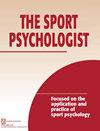The Relationship of Coach-Created Motivational Climate to Teamwork Behaviors in Female Collegiate Athletes
IF 1.2
4区 心理学
Q3 HOSPITALITY, LEISURE, SPORT & TOURISM
引用次数: 1
Abstract
Although teamwork behaviors would be expected to emerge from coach-created task-involving climates, no study has focused on this connection. Thus, we surveyed female National Collegiate Athletic Association (NCAA) Division I athletes (N = 536) on their perceptions of motivational climates created by their head coaches (i.e., 33-item Perceived Motivational Climate in Sport Questionnaire) and their beliefs about their team’s teamwork behaviors (i.e., 19-item Multidimensional Assessment of Teamwork in Sport—Short Form). Cluster analyses revealed three groupings of coach-created climates: low task/high ego (n = 125), moderate task/moderate ego (n = 286), and high task/low ego (n = 125). Through a series of multivariate analyses of variance, with post hoc discriminant descriptive analysis, we found a significant main effect for the motivational climate clusters on teamwork behaviors. Athletes in the high-task/low-ego motivational climate cluster endorsed more teamwork behaviors (e.g., preparation, execution) than those in the moderate-task/moderate-ego and low-task/high-ego climate clusters. These findings suggest the importance of coach-created motivational climates in teamwork behaviors.教练员营造的激励氛围对女大学生运动员团队合作行为的影响
虽然团队合作行为会出现在教练创造的涉及任务的氛围中,但没有研究关注这种联系。因此,我们调查了全国大学体育协会(NCAA)女一级运动员(N = 536)对其主教练创造的动机气候的感知(即33项运动动机气候感知问卷)和对其团队合作行为的信念(即19项运动团队合作多维评估-短形式)。聚类分析揭示了教练创造的三种氛围:低任务/高自我(n = 125)、中等任务/中等自我(n = 286)和高任务/低自我(n = 125)。通过一系列的多变量方差分析和事后判别描述性分析,我们发现动机气候集群对团队行为具有显著的主效应。高任务/低自我激励气候集群的运动员比中等任务/中等自我和低任务/高自我激励气候集群的运动员支持更多的团队合作行为(如准备、执行)。这些发现表明教练创造的激励氛围在团队行为中的重要性。
本文章由计算机程序翻译,如有差异,请以英文原文为准。
求助全文
约1分钟内获得全文
求助全文
来源期刊

Sport Psychologist
医学-心理学
CiteScore
2.80
自引率
6.20%
发文量
18
审稿时长
>12 weeks
期刊介绍:
TSP is a scholarly refereed journal designed as a forum to stimulate thought and disseminate knowledge that focuses on the application and practice of sport psychology. A special emphasis of the journal is on the delivery of psychological services to practitioners such as athletes and coaches. TSP is international in scope and is receptive to diverse methodologies. TSP is published for sport psychology specialists who engage in research, teaching, and/or intervention in a variety of contexts including academic, public, and private settings. The journal is also intended for practitioners such as coaches who have training and interest in sport psychology.
 求助内容:
求助内容: 应助结果提醒方式:
应助结果提醒方式:


